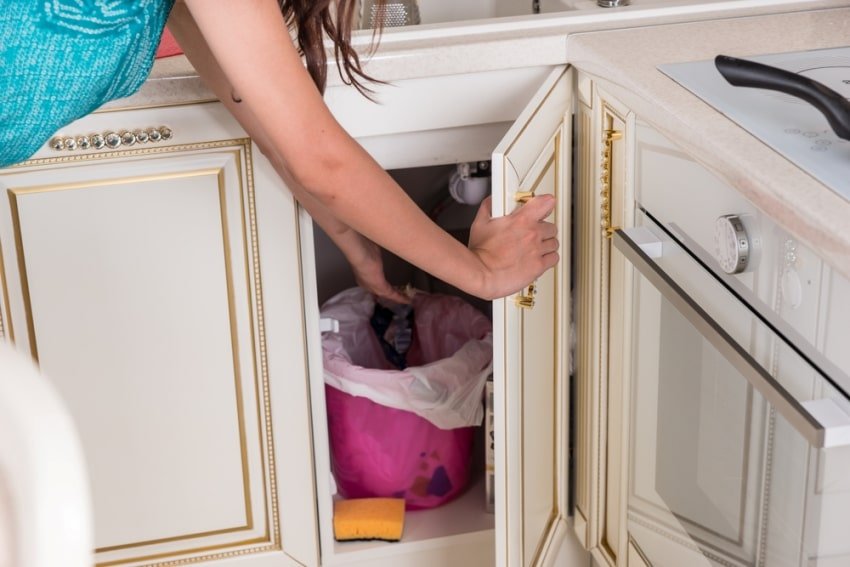Baby oil has many uses for parents, but its original purpose was to keep your baby’s skin soft and moisturized.
Baby oil has been around since 1938 when Johnsons first introduced it. Yet, the concept of using oils on newborns dates back long ago before the 1900s.
Baby oil originated in ancient times specifically in Asian and Pacific Island Cultures. At that time, baby oil was a part of an infant’s regular bath time. Absorbing the oils is extremely beneficial for their internal organs, skin health, and emotional wellbeing.
Interestingly, these cultures valued touch – both spiritually and physically. Touch is still valued by parents today, which is why baby oil still is one of the most sought after products on the market in 2025.
In addition to infant massage, it’s used for diaper care. If you lather it on before putting on your baby’s diaper, it helps protect their skin from diaper rash.
The moisture from wet diapers is sort of repelled away from the body, and won’t irritate a baby’s skin as much with oil on it.
Does Baby Oil Break Down Over Time?
Yes, overtime baby oil will break down and become a bit sticky in texture. This is due to the ingredients used in it. Over time the ingredients break down, becoming less fragrant and moisturizing.
If your mom offers you an old bottle of the baby oil she used for you as a kid, you can say no without feeling bad!
All jokes aside, most baby oil expires in the time frame of three years. Manufacturers tend to vary the ‘expiration’ or ‘recommended to use by’ date somewhere between 1-3 years. Check the label on the bottle you plan to use.
Baby oil can end up lasting a really long time, especially if you aren’t using it every day. A little bit goes a very long way. Don’t be surprised if you still have the bottle you bought three years ago.
What To Do With Expired Baby Oil?
Companies recommend just throwing it out if there is some leftover by the time the expiration date is reached. Then there are companies that will suggest you throw away baby oil yearly to get the most out of your oils.
View in gallery
This solely depends on the kind of ingredients that were used in the oil. Some oils never seem to go bad, while others go bad more quickly. If the baby oil in your home is made mostly from mineral oil, then it probably won’t go bad ever really.
Products with mineral oil tend to have petroleum as the base ingredient. Though petroleum-based products are not the best choice in regards to keeping a health-conscious approach to parenting.
Many parents use these products within their families and might be curious how long these products actually last for.
Here’s a shortlist of other creative ideas of what to do with expired baby oil you don’t want to throw out:
- Shaving oil
- Lubrication for home products like screws and door frames
- Shine your furniture or boots with it
- Get that stainless steel countertop really clean
- Gently remove your makeup
How To Store Baby Oil
You should store your baby oil in a dry cool place. Under the bathroom countertop or the cabinet above the bathroom sink is a good spot for it.
Think in terms of what kind of ingredients are in the baby oil itself. If there are various ingredients, it goes bad based on the ingredient that will go rancid the soonest.
The oil itself won’t necessarily go bad regardless of where you store it or for how long. However, some ingredients become a skin irritant after too long.
Irritating your baby’s skin is the opposite of what it’s made for. With skin products, you want to be on the safe side rather than sorry when you notice a rash appearing from using it.
Sensitive Skin and Baby Oil
If your baby’s skin is particularly sensitive (are they more prone to rashes? If yes,) throwing out baby oil yearly is the best practice. Baby oil can cause the skin to swell, burn, and become inflamed even more so for those with extra sensitive skin.
View in gallery
Furthermore, the container that baby oil is stored in can leach into it over many years. This alone can cause irritation for delicate skin.
You could always store it in an air-tight jar directly after purchase to avoid chemicals from the plastic altering the shelf-life too. Again, better to be on the safe side.
Topical oils are emollients, which is another fancy word for a moisturizer. They can cause allergic reactions in worst-case scenarios. It’s a good idea to test out baby oil on a small patch of skin before applying it over the entire surface of the body.
If you notice an allergic reaction happening when using baby oil
It is recommended that you seek emergency medical help if any of the following symptoms occur after using baby oil:
- Swelling of your eyes, face, tongue, or throat
- Hives
- Difficulty breathing
- Burning
If you have any of these symptoms, discontinue using and contact you, primary physician:
- Irritation in the area it was applied
- Severe burning, stinging, or redness
Other negative reactions can occur too if you notice that your skin is becoming raisin-like, soggy, or even white you might be using too much baby oil too often.
It’s also flammable in certain cases, depending on which ingredients were used. Be sure to stay away from open flames or fire when you’ve recently applied baby oil.
Is Organic Baby Oil Better Than Non-organic?
The thing that makes organic baby oil truly organic in a customer’s eyes is mineral oil. It’s a possible carcinogen if it’s not 100% refined.
The process of refining the ingredients in organic baby oil is takin more seriously. Ensuring that the carcinogenic effects have been completely removed from the batch.
Companies that produce organic baby oil seek out the finest ingredients when putting together their blends. In fact, all the oils in organic baby oil are certified organic.
View in gallery
If you were to read the ingredients list on the box of organic baby oil it would sound similar to this:
- organic olive oil
- organic coconut oil
- organic jojoba oil
- organic sunflower oil
- organic calendula oil
Notice that the calendula makes this blend of baby oil unique. Depending on which company you purchase from, there will be special ingredients to ‘enhance’ their product and make it stand out.
I like to look at these little details that make a big difference. It’s nice if your baby is having a bout of dry skin or other specific discomforts that you can look up what ingredient would help soothe it.
Tea is great for diaper rashes and keeping harmful bacteria at bay in diapers.
How are organic oils processed
The main difference in the way organic baby oils and non-organic baby oil is processed comes down to the pesticides that were used, the fertilizers used during growth, and the specific methods used in the aftercare of the plants while harvesting them.
For instance, when olive oils are produced, the olives were never sprayed with pesticides. They were handled with enough caution regarding chemicals used to break down the olives into the oil.
It is ensured that the level of purity meets the USDA’s standards required to be certified organic.
Non-organic oils don’t have the same standards of processing from the tree and the customer. They could have been sprayed with chemicals.
Chemicals can cause irritation in itself. In other words, organic baby oils have been processed in a much safer manner than non-organic oils.
When we’re talking about skincare for baby’s, having ingredients of the purest form will keep you from having to take care of potential rashes or allergic reactions to the ingredients added while being processed.
Animal cruelty
Aside from the 100% organic certification, there’s another certificate through the Leaping Bunny Program that ensures a product has been manufactured in a way that doesn’t harm animals.
To have a leaping bunny certificate, the company must practice techniques that don’t cause animal harm in the process of making it. For cosmetic products, this generally means it wasn’t tested on animals.
Organic baby-oils are often certified with the leaping bunny program too.
How To Make Your Baby Oil Last Longer
Baby oil has a limited shelf life, unfortunately. But if you want to extend that as long as possible, you can do the following:
- Open it right before you plan on using it.
- Seal the lid tight and secure when you’re finished using it.
- Store it in a cool dark place.
Does Johnson’s Baby Oil Last Longer
Johnsons is the most well-known brand of baby oil on the market today. Parents trust this brand, and they advocate that they derive from all-natural resources. Their baby oil does have an expiration date though, which is roughly 3 years from opening.
View in gallery
Even with this expiration date, they ask customers to replace their bottles of oil once a year. This is to ensure that the ingredients inside of it don’t go bad over time with use.
Look for the year it was manufactured on the side of the bottle, the fourth number will tell you what year that bottle was made.
Is Johnsons Hypoallergenic
Johnsons is always expanding its list of known allergens to keep out of their products.
They have been around such a long time that their list has changed many times. Staying up to date for them is essential in keeping their products the best on the market.
Johnson’s baby oil is hypoallergenic, meaning all potentially harmful allergens aren’t included in the blend. Even so, some baby’s are extra sensitive and parents should keep an eye on any unusual rashes that appear after using this brand of baby oil.
Are Johnsons and Johnsons Products Biodegradable
Bottles of baby oil from this company are made to be recycled. They can be taken to any recycling center in the US. Having a biodegradable bottle ensures that they remain as eco-friendly as possible once the bottle reaches the family that will use it.
Prior to biodegradable bottles, a single bottle could take 400 – 1,000 years to decompose. Now they can take as little as a few years to decompose. This technology is the most environmentally friendly, keeping plastic out of the oceans and sea beds.
If a company is not already using biodegradable packaging, they are behind in the game. It’s strongly encouraged by the market to use biodegradable packaging.
What About Preservatives In Baby Oil
The only reason that preservatives are used in baby oil is to keep harmful bacteria at bay. Without preservatives mold, mildew, and other contaminants would happen within weeks.
View in gallery
There are many forms of preservatives that can be used. Depending on which company you’ve bought baby oil from, determines which ones were used.
For my personal home care products, I use vitamin E oil. Companies that have their products on the shelf have to use stronger preservatives.
That’s because they’re sitting on the shelf longer and have been processed through an entire eco-system of production before the baby oil reaches your household.
Some well-know preservatives by companies who produce baby oil are:
- Phenoxyethanol is used by Johnsons company
- Benxyl alcohol
- Dehydroacetic acid
- Glyceryl Caprilate
- Potassium sorbate
- Sensicarem4200
If you notice in the ingredients list that you don’t understand the terminology used, a simple Google search will send you in the right direction of understanding. We often get overwhelmed looking at an ingredients list.
For natural products, the ingredients list seems to be easier to read – because they leave out many of the unnecessary chemicals and preservatives in production.
Sources
Infant Massage – Encyclopedia.com
Johnson’s Baby Oil Topical Emollients – WebMD
The Corporate Standard of Compassion For Animals – Leaping Bunny Program






